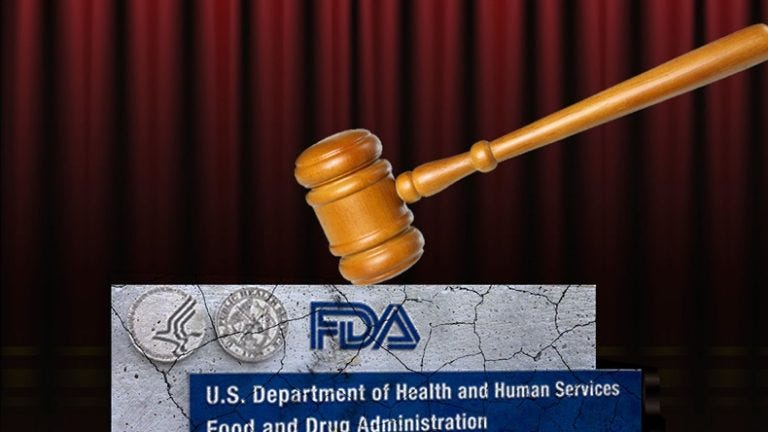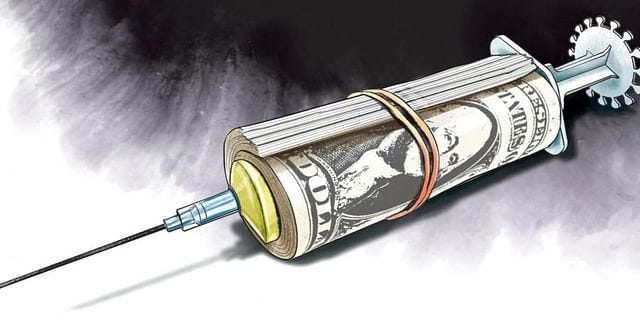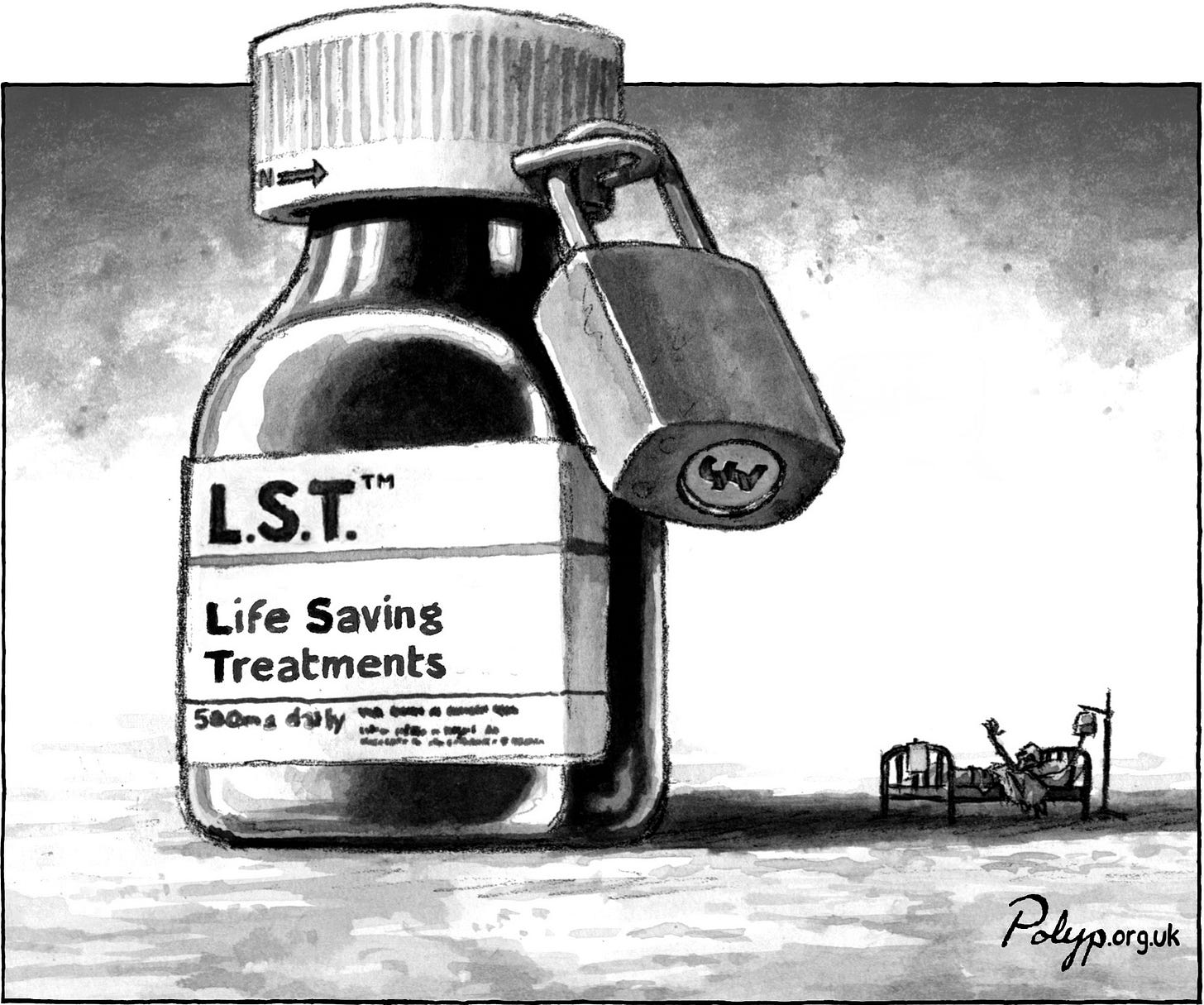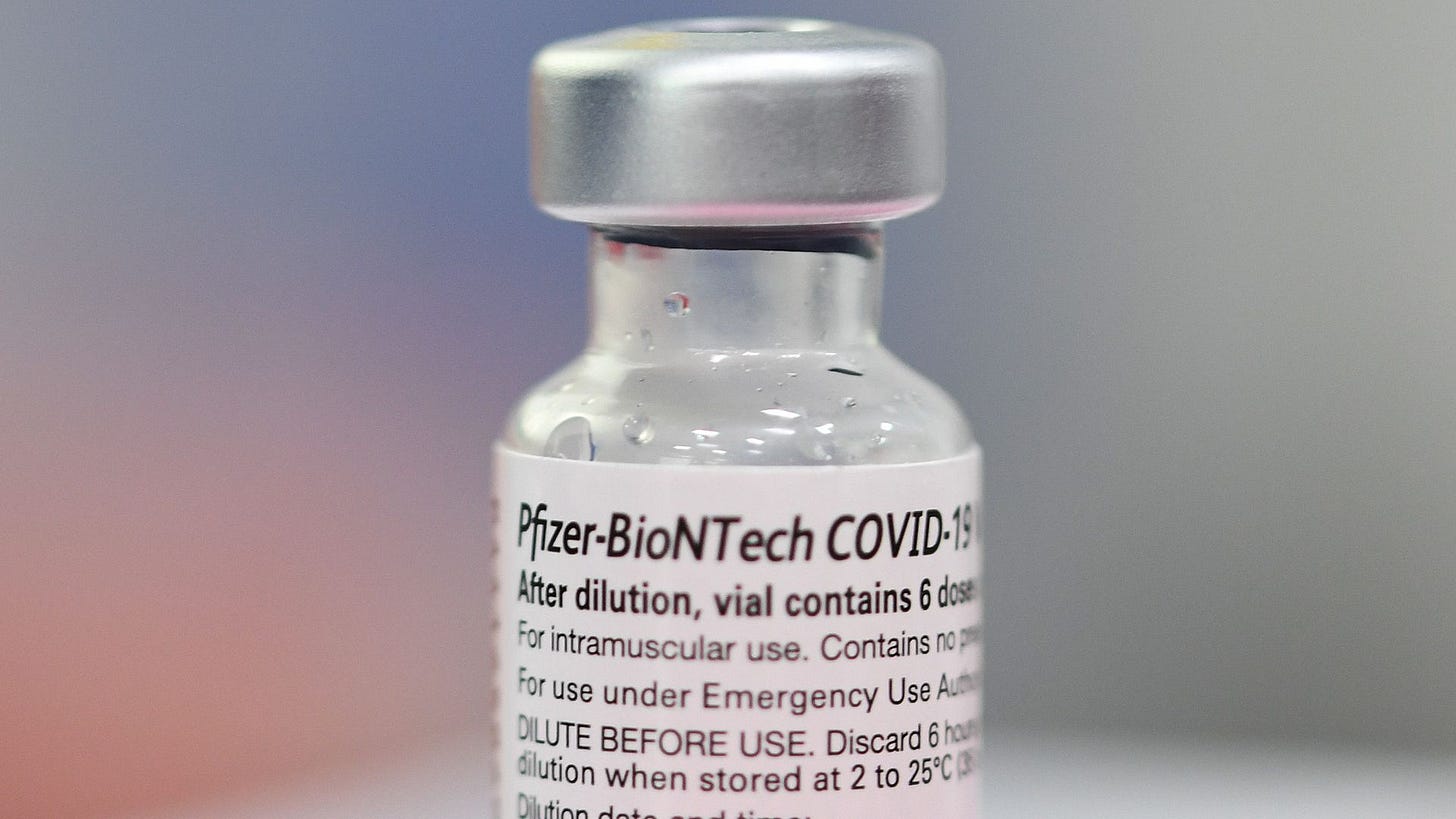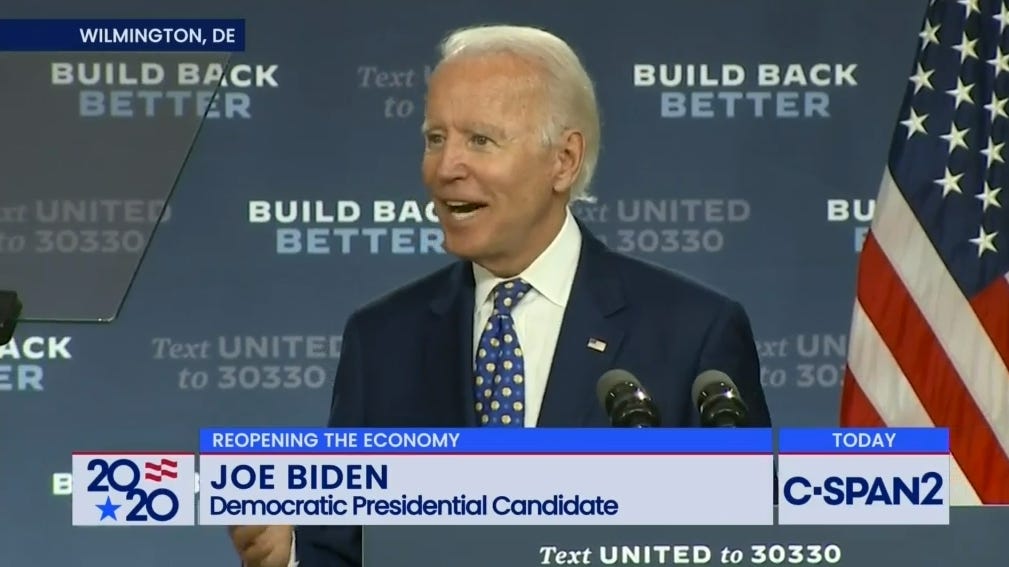The FDA's "Commitment to Transparency" Part II
Follow the money.
Euphoric Recall is a reader-supported publication. To receive new posts and support my work, please consider becoming a free or paid subscriber.
The FDA is a captured agency.
In other words, even though the FDA is supposed to be the regulatory agency to which Big Pharma is subordinate, the relationship is actually vice versa; the FDA no longer acts with the public's best interest in mind1 and instead caters to the whims of the pharmaceutical industry.
Why? The reasons are various, but the two big ones (in my opinion) are:
The revolving door between pharmaceutical executives and FDA leadership positions.
The FDA gets 75% of its funding from the industry it's supposed to be regulating.
Seems slightly problematic that an industry known for its greedy ways relies on “connections” with the agency tasked with regulating it. I doubt these “connections” consist of the occasional friendly handshake and the exchanging of Christmas cards. Given the pharmaceutical industry’s penchant for unethical practices, one would almost take it as a foregone conclusion that they readily ply their “regulating agency” with cash.
Now, I am not a cynic. But I am a realist. And in my mind, if there's one thing that stands out between reality in the military vs. reality in the civilian world, it's that A LOT of civilians don't even try to hide their lack of devotion to anything beyond self-interest. Whereas in the Army (and, albeit in a different but much more visceral way, at West Point) self-interest was subsumed into group interest because there was no survival outside of group survival, out here in me-first la-la land there’s an obsession with personal success and climbing the ubiquitous American social ladder, and it goes hand in hand with the shameless eschewal of anything that doesn’t promise individual reward and advancement. To this day I still find it deeply, deeply alienating.
(Please don’t mistake me for some kind of pretentious moralizer or street-corner evangelist, though. I am but a hardcore hopeless romantic who is himself very flawed.)
The point being that today, perhaps more so than ever before, people are easily corrupted by money, and the FDA prostrating itself before Big Pharma is a fine example. It stands to reason that such a stark conflict of interest might result in lax standards and ethics, or even a lack of regard for caution and due diligence when it comes to product approvals:
You Scratch My Back, I’ll Scratch Yours
The pharmaceutical industry spends almost 60 billion dollars a year on advertising, while the government folks tasked with regulating all this advertisement have an annual budget of just $9 million.
The pharmaceutical industry also donates millions and millions of dollars to Congress members and even presidents—Obama, for example, was given $1.2 million during his 2008 election.
Why’s this important? Because the ancient principle of “you scratch my back, I’ll scratch yours” is alive and well even in the upper echelons. Just as you feel a certain sense of obligation to return the favor when a friend lends you some bones, so too does Washington, except the return favors come in the form of massive tax breaks and tiny financial penalties for violating laws.
Now, if Big Pharma is a key monetary pipeline for the FDA (an agency of the federal government, remember), then it's in the interest of the FDA to ensure that Big Pharma continues to profit handsomely—a bit of a conundrum, if you think about it, because curing patients isn't what you'd call a sustainable business model. If you're a medical company, your investors obviously want you to profit and would thus much rather see you create customers than cure them, which is why Big Pharma is in the business of treating symptoms.
Dude!
But boy oh boy, talk about a windfall. The pandemic has certainly been a boon for Pfizer and its ilk.
It was just revealed that in 2021, Pfizer made $36.8 billion from its vaccine, making it the top-selling pharmaceutical product ever in a single year by a huge margin.
Pfizer expects its vaccine will generate $32 billion in sales in 2022, while the company's antiviral Covid pill, Paxlovid, will bring in an additional $22 billion of revenue.
And, thanks to the Biden administration’s perverse insistence on ensuring market conditions and socio-political dynamics are as favorable to the vaccine manufacturers as possible, these companies find themselves ensconced in a veritable gold mine.
It’s one thing for a government agency like the FDA to be in the pharmaceutical industry’s pocket; it’s another thing entirely for a presidential administration and political party to create the sort of dream scenario that only two dudes passing a bong with some very potent weed could think up.
Dude 1: Dude, you know what would be awesome if we were one of the vaccine companies? Getting the government to mandate our vaccine!
Dude 2: Dude, that’d be sickkkkk. You know what would be even better, is if the fed, like, forced vaccine apartheid so that all the holdouts were turned into scapegoats and villains, and then it became, like, a moral issue—like the sort of thing that neurotic-wealthy-liberal white women could virtue signal about on Twitter!
Dude 1: What about this, what about if they made basic rights contingent on getting our vaccine!?
Dude 2: Dude, we’d make some serious cheddar! . . . Wait! Dude! What about this!? What if our vaccine was, like, not as good at doing what it's supposed to do as it's supposed to be? Like, what if people had to get it more than once? Or twice?? Or three times??? What if we even had Joey B’s backing to push extra little vaccines on top of all that, too!? Like…boosters for our leaky vaccines!
Dude 1: Oh my God. Dude. What if we convinced people that their kids needed to get vaccinated, even though kids are, like, more at risk of being trampled by aggressive penguins than Covid!?!?!?
“Marshal Every Possible Resource To It”

Recall that the FDA, upon being sued for refusing to release the licensure documents for Pfizer’s vaccine2, claimed that it needed 55 years before it could do so.
Do Freedom of Information Act requests often take a while?
Sure do. Ask Fauci.
But this goes well beyond typical bureaucratic foot-dragging.
When the court ordered the FDA to come back with a brief explaining why such a long wait was necessary, the agency apparently decided to up the ante even more: they requested another 20 years.
Well, the federal judge rejected the FDA’s request. Hard no on that, guys. And I get the sense that the judge was more than a bit peeved, because he averred that releasing this information to the public should be one of the FDA’s highest priorities and ordered them to produce the documents at a rate of 55,000 pages per month instead of their snail’s pace of 500.
The agency’s reps had a hissy fit over this, of course. They said it was highly unlikely that such a request could be accommodated. Their excuse? They “don’t have enough document reviewers.” According to the plaintiff’s memorandum, the FDA claimed that it was doing what it could to “marshal every possible resource available to it” and had “allocated the equivalent of nearly 11 full-time staff to this project.”
Really? The FDA has a whopping 18,000 employees and it was just granted a yearly budget increase of 8%, bringing the total to $6.5 billion (of which $3.6 billion is discretionary). Assigning 11 people to work on the project is marshalling every possible resource?
Not only this, but the agency claims that these 11 full-time staffers can produce only 10,000 pages a month. Eleven people working 8 hours a day but reviewing only 10,000 pages a month comes out to approximately 5 pages an hour.
And it’s not like these documents are complex puzzles or crosswords or Where’s Waldo or something—they’re “repetitive data files that only require second level review to redact minimal amounts of PII [personally identifying information] that Pfizer may have left in the documents,” like those seen below.
Much Transparent, Very Safety
There is virtually no other product where a consumer is prohibited from suing the company that manufactures, markets, and profits from the product. Needless to say, allowing a vaccine manufacturer to decouple its profits from the interests of public safety is a moral hazard and runs contrary to product liability doctrine.
But what makes all this even more ridiculous is that President Biden has stated on several past occasions that transparency vis-à-vis the vaccines is of the utmost importance.
“You’ve got to make all of it [the vaccine data] available to other experts across the nation so they can look and see, so there’s a consensus this is a safe vaccine.” — Biden on July 28, 2020
“I get asked the question, if President [Trump] announced tomorrow we have a vaccine, would you take it? Only if it was completely transparent and other experts in the country could look at it. Only if we knew all of what went into it.” — Biden on September 7, 2020
“[We need] total transparency so scientists outside the government know exactly what is being approved.” — Biden on September 16, 2020
FDA is the organization responsible for “protecting the public health by assuring the safety, efficacy, and security of human drugs.”
Just as a reminder, the reason Pfizer is the company mentioned in court affairs is simply because they were the first to get their vaccines “approved” for public use.



